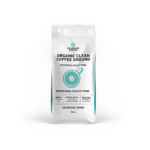Obesity Drug Ozempic is it the one pill wonder?
I recently dropped into my local newsagent and found my eyes instantly drawn to the front page of The Weekend Australian..
The headline read….
“The Nations Weight Divide – Personal Problem or society’s fault?”
I take my hat off to the journo as the headline really was eye-grabbing. I had to buy it. I had to know what mainstream media was saying about what we need to do about Australia’s rapidly increasing obesity problem.
I point the finger of blame at the Australian Dietary Guidelines, vested interests and lobby groups for the Obesity crisis, an unbridled food industry that is more interested in profit than health, an agricultural industry that is allowed to use far too many chemicals to grow food and the drug companies that want to make a fortune on the demise of our health. All in all, destroying our microbiome, our ability to be healthy easily and our ability to consume a variety of foods without suffering health issues.
You see, when most of our supermarkets are stocked with ultra-processed foods and/or foods filled with dubious agricultural and manufacturing chemicals, combined with the public being duped into believing that what is on the shelf of a supermarket can’t hurt them due to clever marketing tactics, when you put the two together it’s easy to see where the obesity challenge in Australia has stemmed from.
Just to zoom out for a moment, if you look at any photo of beachgoers in the 1970’s in Australia – (honestly, just Google “Aussie Beach 1970s,”) and you’ll find images of people looking svelte, lean, and healthy. Fast forward to today, if you hit the beach anywhere in Australia, you’ll see men with big bellies and women very much overweight. Two thirds of the adult population in Australia is overweight and/or obese.
Enter three strategies for weight loss
• Lifestyle management
• Bariatric Surgery
• Drugs – Ozempic (diabetic drug)
The national clinical treatment guidelines are currently up for review and, dietitian and academic lead of the review Dr Judi Porter, has said – “the advent of effective weight loss drugs was an enormous development in obesity treatment and a scientific committee would examine the evidence of drug benefits and risk amid a massive overhaul of how we manage obesity and overweight”.
I believe that this dietitian does not believe that the current dietary guidelines are worthy of dealing with the health, obesity and diabetes issues we see today. Sadly, neither do I but I also don’t have much hope in the new dietary guidelines being drafted nor the use of a ‘silver bullet’ drug that helps in the pandemic we see of eating the wrong foods and obesity.
Yes, it’s easier said than done for many people to drag themselves away from ultra-processed, highly palatable foods. But in essence, this is the root cause of the issue. Whether it’s hormonal, thyroid, or genetic, it all comes down to how we live our lives and the foods we choose to put on our plates. It is not just about weight; it is about health. Furthermore, how can we expect to instil lifestyle changes for those who need it to be easy when ultra-processed food is subsidized and cheap while meat, eggs, organic fruits, and vegetables are more often than not, out of reach financially?
I feel like I’m banging my head against a wall here. I’ve been saying the quality of food and looking for health rather than quantity of food and weight loss should be our goal, but I’m fighting against an establishment that favours sickness over health for profit.
I rarely spend on Medicare; I had to pay for my legal vaccine exemption to travel $75.00 – which, of course, there is no Medicare rebate there. I’ve never used the prescribing benefits (PBS – subsidized drugs), and I rarely see a doctor unless I need a splinter (from the farm) out of my foot (which was the last time I saw my GP of 35 years). Yet I’m given no rebate from Medicare for the work I do to stay healthy. But for someone who doesn’t put the work in, doesn’t exercise, doesn’t educate themselves, doesn’t get up to see the sun rise, doesn’t do anything that their body needs to be healthy may receive a drug worth thousands of dollars subsidized to help them with their weight and or health issue.
Perhaps annual financial Medicare rebate incentives for the healthy may be a better system. Reward health and penalize sickness, especially self-imposed sickness. I know someone reading this is going to come back at me with, “But what about a child with a brain tumor?” or “What about the person who nearly drowns and has a brain injury”, let’s be sensible, this is when Medicare is necessary and fair, and just to be clear, not where my issue lies. My issue lies in the people who eat the wrong foods, drink alcohol to excess, smoke like a chimney, and do nothing to help themselves. A simple case study will reveal this fact.
There is a current discussion about a social credit score, so why not a health credit score? If we use credit cards and eftpos cards and all our groceries are scanned, then surely a smart government could realise who is eating real foods and who is eating ultra-processed foods and from there appropriately reward and renumerate those who are active in their health journey?
It’s highly unlikely a health credit scheme would ever happen because we can’t even agree on dietary guidelines and things that make us healthy. Throughout my career I’ve played a game of opposites with the recommended dietary guidelines – when I said butter they said margarine, when I said salt they said low salt, when I said meat they said vegan, when I stay away from breakfast cereals, they say it’s the best start to the day, when I said whole milk, they said skimmed or oat milk, when I said raw milk they shouted ‘poison’ and make it illegal. I believe, and always have, the opposite of what the dietary guidelines say, so while a health credit score may divide the nation, so does the obesity epidemic solution at current.
Over the years I’ve learned that the best I can do is do the best for myself and my family and then spread the word for those who want to partake in a different culture and lifestyle, and even though we may not get a hand out from the government for not wasting taxpayers money, we will be the ones who win in the end, with wonderful health both physically and mentally and a more robust life being able to do all that we want to do in our life.
Rant over, let’s talk about why you all started reading this, the drug to combat obesity. Ozempic.
Firstly, let’s quickly skip to the US where the American Association of Paediatrics has recently released its new guidelines; while the report is extensive, there are three parts that give us reason to pause at such extreme measures:
• Offering teens aged 12 and older obesity weight loss medications.
• Advising that teens ages 13 and older with severe obesity, which they define using Body Mass Index (BMI), be assessed for weight loss surgeries.
• Proposing that nutrition support, behavioral therapy and exercise guidance aimed at weight loss starting as early as two years old.
While Australia has not come up with its new guidelines, we know that the academic lead in the national clinical treatment guidelines is very excited about the obesity (diabetes) medication – Ozempic, which you may have seen marketed in Australia as “Wegovy”.
Ozempic/Wegovy is a diabetes drug now used for obesity, its active ingredient being semaglutide, a GLP 1 receptor agonist. It is a once a week self-injectable. For diabetes, the dose is less than for obese people. It is a drug to be taken for life, yet there is only research carried out across a 62 week period, in which the study showed a decrease in weight of no less than 5% and no more than 14% of body weight.
How does Ozempic/Wegovy work?
1. Ozempic Delays Gastric Emptying
GLP-1Receptor Agonist treatment, such as Ozempic, can delay stomach emptying within the first hour after a meal. This delay in stomach activity means that food remains in your stomach for longer, therefore satiety lasts longer. You don’t feel hungry as quickly and therefore stop reaching for the fridge half an hour after lunch.
2. Ozempic Reduces Hunger and Appetite
Ozempic and other GLP-1RAs have effects that extend beyond the stomach. They affect specific brain areas involved in hunger and appetite regulation.
Specifically, GLP-1 receptors are found in the hypothalamus, which regulates food intake.
Therefore, administering a GLP-1RA like Ozempic reduced feelings of hunger and appetite in obese individuals.
3. Ozempic Increases Satiety and Prevents Overeating
As a neurotransmitter that signals satiety in the brain, it tells us when we’ve had enough food and are satisfied. It may also increase satiety by stimulating specific neurons and inhibiting the neuropeptides that control satiety.
Troubling Issues with Ozempic
Medullary thyroid cancer – after the product was put on the market.
Cases of Medullary thyroid cancer (MTC) have been reported in patients treated with liraglutide (same drug class as Ozempic) in the post marketing period; the data in these reports is insufficient to establish or exclude a causal relationship between MTC and GLP-1 receptor agonist use in humans.
Common side effects include anxiety, bloating, blurred vision, chills, cold sweats, confusion, constipation, cool, pale skin, cough, darkened urine, depression, diarrhea, difficulty swallowing, dizziness, fast heartbeat, fever, headache, increased hunger, indigestion, large, hive-like swelling on the face, eyelids, lips, tongue, throat, hands, legs, feet, or sex organs, loss of appetite, nausea, nervousness, nightmare, pain in the stomach, side, or abdomen, possibly radiating to the back, seizures, skin rash, slurred speech, tightness of the chest, trouble breathing, unusual tiredness or weakness, vomiting, yellow eyes or skin.
Less common include, acid or sour stomach, belching, excess air or gas in stomach, heartburn, passing gas, stomach discomfort, swelling tenderness or upset
This is the warning on the packaging of Ozempic:
Warning
Subcutaneous route (Solution)
Warning: Risk of Thyroid C-Cell Tumors In rodents, semaglutide causes dose-dependent and treatment-duration-dependent thyroid C-cell tumors at clinically relevant exposures. It is unknown whether semaglutide causes thyroid C-cell tumors, including medullary thyroid carcinoma (MTC), in humans as human relevance of semaglutide-induced rodent thyroid C-cell tumors has not been determined. Semaglutide is contraindicated in patients with a personal or family history of MTC or in patients with Multiple Endocrine Neoplasia syndrome type 2 (MEN 2). Counsel patients regarding the potential risk for MTC with the use of semaglutide and inform them of symptoms of thyroid tumors (eg, a mass in the neck, dysphagia, dyspnea, persistent hoarseness). Routine monitoring of serum calcitonin or using thyroid ultrasound is of uncertain value for early detection of MTC in patients treated with semaglutide.
Contraindications (you definitely should not take it) if you have pancreatitis, type 1 diabetes, Under 18 years of age (yet the AAP allows it for 12 year olds, pregnant or breastfeeding, diabetic retinopathy, problems with the pancreas or kidneys, family history of medullary thyroid carcinoma (MTC), multiple endocrine neoplasia syndrome 2
Lawsuits against Ozempic
The first Ozempic lawsuit in the US was filed August 2nd 2023 with the claim the drug causes gastroparesis, ileum and intestinal blockage and that the drug manufacturers failed to warn of the risk. As of January 2024, it is now being discussed due to the many lawsuits regarding gastroparesis that there may be a federal multi-district (class action) litigation against the drug manufacturers.
Gastroparesis is a severe disorder that causes food to move too slowly through the stomach to the small intestine. In some cases, food may stop moving altogether, causing a blockage. Gastroparesis may cause nausea, vomiting, bloating, pain, dehydration, acid reflux, malnutrition, and weight loss. Undigested food may stay in the intestine and harden. The FDA added intestinal blockage, obstruction, and ileus to the warning label of Ozempic.
Makers Novo Nordisk – Drug Pushers
The makers of Ozempic/Wegovy are using Social Media to push their new obesity drug targeting vulnerable population groups by sponsored advertising with the call to action by sending you to a website “truthaboutweight.global”. The website sponsored by Novo Nordisk has affiliations with the Australian Diabetes Society, which in turn has affiliations with Diabetes Australia and Endocrinology Associations in Australia. It points to obesity being a disease – their definition and I quote:
“Obesity is a chronic disease that can seriously impact your quality of life and wellbeing. Here’s everything you need to know about obesity – including signs and symptoms of obesity, diagnosis, and an accurate obesity definition”.
It then helps you find a medical doctor or GP to help you with your disease of obesity and as most doctors do not have any training in lifestyle and nutrition, you can imagine that their knowledge of diagnosis and management with medications will mean that you will be prescribed Ozempic/Wegovy.
When Obesity is considered a disease, it is a triumph for the pharmaceutical industry. In my way of thinking it is impossible to solve a pandemic of obesity caused by a very unhealthy, ultra-processed food environment by treating it with drugs. And Novo Nordisk is no different from the rest of the weight loss industry; it’s selling a body beautiful, be-thin illusion with a one-pill (or once weekly injection rather) wonder.
My Thoughts
Losing weight should be a health pursuit, not something where you lose the weight, but, in the meantime, you may get cancer, gastroparesis, and feel unhealthy. Doesn’t that seem counterintuitive? It is beyond my comprehension why a drug of this kind is even being considered, especially by a lead dietitian, for the new clinical guidelines.
People who are overweight because of poor choices need education, training, and support to change their current habits and form new habits that are conducive to lifelong health and wellbeing without dramatic and life-threatening side effects. This is what we do at Changing Habits and The Nutrition Academy. We are here to help these people; some come to us because of education, and others come for our programs and protocols. It takes hard work and consistency, it’s not as easy as a drug and not as hazardous as medication, these are not quick fixes, but the rewards are far greater in the long run in many ways both physically and mentally both for you, your family, your community and the planet, in more ways than people every realise.
People who have no control of their eating habits, whether they have binge eating disorder, food addiction, anorexia nervosa, or bulimia and or food addiction are just that – addicts who have mental health issues and should be treated as addicts with mental health issues long before they are treated for obesity. A drug, whether an obesity drug or a mental health drug, is not going to fix the problem but merely mask the symptom (weight issues). Addiction comes in many forms, and the total lack of control of whatever substance is being abused should be addressed first.
The Root Cause
I believe that mental health issues and addiction may be due to the health of the individual due to diet, emotional stress, childhood trauma, lifestyle, it is multi-factorial. These have all been compounded by the ultra-processed food environment found in every grocery store, that adorn the supermarket shelves that create illness both physically and mentally. Giving the body the right foods and the right lifestyle changes things almost instantaneously, but it is the consistency for the rest of your life that turns things around.
I’m one person, I’ve lived the lifestyle and eaten the foods to be the best version of myself. I’ve helped others achieve this, either family and or friends and I have an incredible team that supports me to do this. On top of that, I have all the graduates from The Nutrition Academy that have changed their own health habits and that of their family, friends, and clients. We are not going to change policies (I’ll leave that to Dr James Mueke – he is my hero in that space), but we can start a grassroots movement that will, in turn, change what is happening at the top, which for me is pure incompetence.
Cyndi O’Meara
References
Front page Weekend Australian 4-5th February 2023
Weekend Australian Magazine Disease or Lifestyle 4-5th February 2023
The Australian February 6th 2023 – The Nations Weight Divide page 7
The Australian February 15th 2023 – Shining spotlight on shadow drug campaign page 8
https://www.drugs.com/sfx/ozempic-side effects.html?form=subcutaneous_solution
https://www.forbes.com/health/body/ozempic-for-weight-loss/
https://www.truthaboutweight.global/global/en/managing-your-weight/manage-weight-6-scientifically-proven-obesity-treatment-options.html
https://www.drugwatch.com/legal/ozempic-lawsuit/









0 Comments